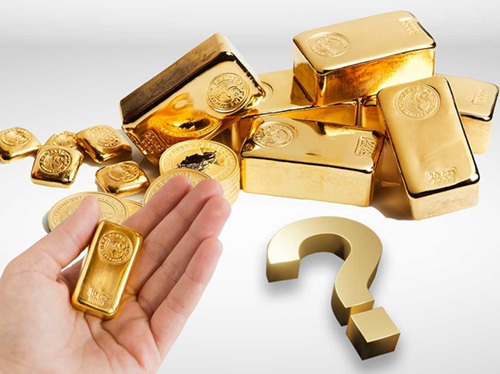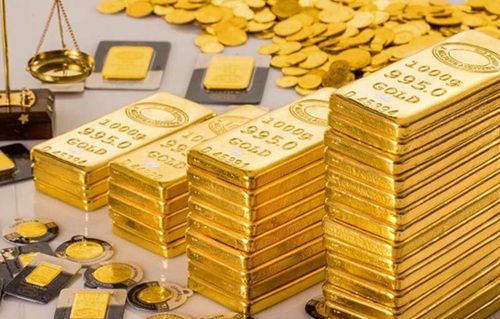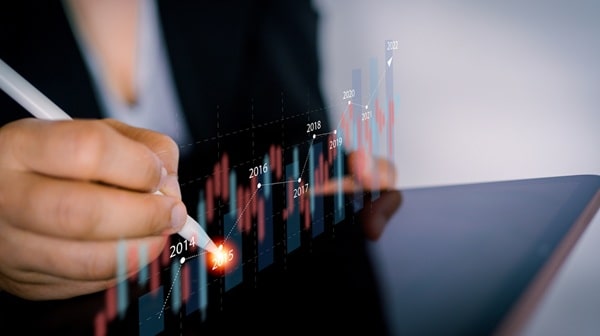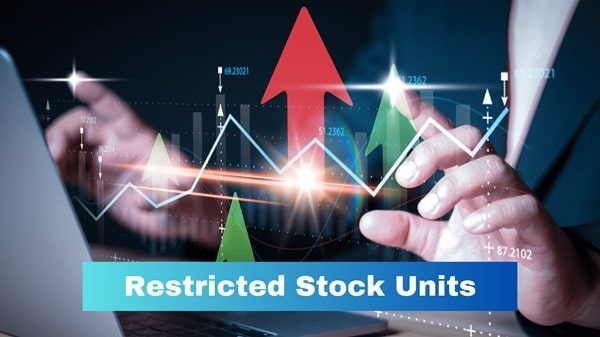Gold is one precious metal that have always fascinated people from time immemorial. This is mainly because it is one of the rarest metals on earth and radiates a special beauty in addition to being durable (almost indestructible). This precious metal has always held allure from one culture to the other and across centuries.

It has served many purposes across different times and climes starting out as ancient coins to being a store for royal treasuries and then getting into central bank reserves. The most recent (though not so recent) appeal is privately owned gold that is used for the diversification of investment portfolios. This precious metal investment also serves as a hedge against inflation and therefore a means of wealth preservation.
In this article, we will look at how individuals can own gold and the different forms of investment you can secure with it. We will also share tips on how to strategically incorporate this precious metal into your investment portfolio to balance it out.
Why Invest in Gold?

Everyone knows that gold has a timeless appeal but some people still do not understand why they should invest in this yellow metal. The following are some reasons to consider: –
- Hedge Against Inflation – This precious commodity is known to retain its value over time. Even during inflation and when regular currencies lose their value, gold appreciates which in turn protects the wealth of investors.
- Diversification of Investment Portfolio – Having gold as part of an investment portfolio helps to reduce volatility and increase risk-adjusted returns on investment. This is because it has a negative or low correlation with other classes of assets such as bonds and stocks.
- Crisis Protection – When there is political upheavals and wars or financial crisis, this commodity holds its value and performs even better as people lose confidence in conventional financial systems.
- Wealth Preservation – The physical metal cannot be devalued by any policies of central banks unlike paper assets. Its value remains constant over time.
- Liquidity – This yellow metal is recognized everywhere in the world and can be easily sold and bought which is why it is one of the most liquid assets on earth.
Types of Gold Investments

There are many ways of investing in this precious commodity and each of them have their pros and cons. It is therefore important for investors to understand all that is entailed in the different investments before making a choice.
Below are the different types of investments: –
Physical Gold
This is mostly known as bullion which includes bars and coins and it is the most direct means of ownership. The bars are available in different sizes (grams and kilograms). The most popular coins among retail investors include the American Gold Eagle, Canadian Maple Leaf and the South African Krugerrand.
Jewelries are also a form of ownership and investment but they are not quite efficient because of the cost of designs and high premium for insurance.
Pros
- Privacy of ownership
- Tangible asset
- No counterparty risk
Cons
- Does not generate income
- Requires insurance and storage
Gold ETFs (Exchange-Traded Funds)
ETFs backed by precious metals allow investors to enjoy the benefits of gold prices without physical ownership. These funds hold the precious metal in vaults and issue shares to their investors.
Pros
- It is highly liquid
- Low entry cost
- Ease of trade
Cons
- Management fees
- No direct ownership of physical asset
You can visit this site: https://www.moneycontrol.com/ for more insight.
Gold Mining Stocks
This entails investing in companies that mine this precious metal and it in turn exposes the investor to the price of metal. Therefore, when the price goes up, the return on investment also increases.
Pros
- There is potential for higher returns on investment
- There is the possibility for dividend income
Cons
- Operational cost
- Risks specific to the mining company
- Market volatility
Gold Mutual Funds and Index Funds
These are funds that invest in a mix of gold-related assets which often include bullion and mining stocks. This offers diversification within the precious metal industry.
Pros
- Professional management
- Diversification within the industry
- Potential for growth
Cons
- Management fees
- Market volatility
- No physical ownership
Futures and Options
These are financial instruments that allow the investor to speculate on the future price of the commodity. This option brings high return on investment but comes with serious risk.
Pros
- Hedging capability
- Leverage potentials
Cons
- Not recommended for novices or beginners
- Quite complex
- Comes with risk of serious losses
Digital Gold and Gold Savings Accounts
There are digital platforms that enable investors to purchase some quantities of this yellow metal online which is stored securely by the service provider. This is a modern approach that offers a new level of convenience and has low barriers for beginners.
Pros
- 24/7 accessibility
- Fractional ownership
- Ease of buying and selling
Cons
- Counterparty risk
- Limited regulatory oversight
Risks and Considerations for Investment

Although this precious metal is said to be a safe-haven investment, it also comes with some risks just like other types of investment. This therefore means, you have to consider well before investing. Find below some points for consideration: –
- No Income – Unlike stocks and bonds, there is no interest or dividend when you invest in this yellow metal. All you depend on for returns is price appreciation.
- Cost of Storage – Physical ownership of the commodity entails that you get insurance and secure storage which all increases total cost.
- Counterparty Risk – This applies to options that rely on third parties; if the custodian or company fails, you stand the risk of incurring loss.
- Taxation – There are some jurisdictions where the tax on gold is different from other investments. So, it is important to understand taxation laws in that regard before investing in any option.
Click here for a balanced discuss, for and against investing in Gold.
Conclusion
Owning gold provides a great combination of security, stability and globally recognized value. This asset can be held physically or in other forms as we have discussed in this article. No matter the form of investment you choose, there is potential for substantial gains. However, you need to do your due diligence before choosing any option.
We believe the information we have shared in this piece will go a long way in helping you make an informed decision.

